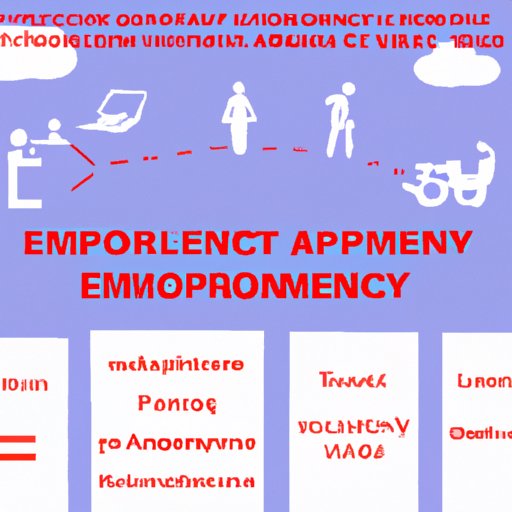Introduction
An employment agency is a business that helps people looking for work find suitable employers. It can be an invaluable resource for both job seekers and employers alike. Starting an employment agency can be a challenging but rewarding venture. This article will provide a step-by-step guide on how to start an employment agency, as well as essential qualifications and legal requirements. It will also outline the types of services offered by an employment agency.
Step-by-Step Instructions for Starting an Employment Agency
Starting an employment agency requires careful planning and preparation. Here are some key steps you should take when starting an employment agency:
1. Establish Business Plan
The first step in starting an employment agency is to create a comprehensive business plan. Your business plan should include an executive summary, market analysis, financial projections, and marketing strategies. It should also outline your services and how you plan to differentiate your business from other agencies.
2. Register the Business
Once you have developed your business plan, the next step is to register your business with the appropriate authorities. This typically involves registering with your state’s Secretary of State office and obtaining any necessary licenses or permits from your local government.
3. Obtain Necessary Licenses and Permits
In order to legally operate an employment agency, you will need to obtain certain licenses and permits. This process varies by state and may require additional fees. Be sure to research your state’s specific requirements before proceeding.
4. Find a Suitable Location
Once you have registered your business and obtained the necessary licenses and permits, the next step is to find a suitable location for your agency. Consider factors such as access to public transportation, nearby businesses, and potential customers when selecting a location.
5. Develop Your Services and Market Your Business
Once you have established your business and found a suitable location, the next step is to develop your services and market your business. You should consider developing specialized services to differentiate yourself from other agencies. Additionally, you should create a comprehensive marketing strategy to reach potential clients.

Essential Qualifications for Starting an Employment Agency
In addition to the steps outlined above, there are certain qualifications and skills that are essential for starting an employment agency.
1. Knowledge of Labor Laws
A thorough understanding of labor laws is essential for starting an employment agency. This knowledge will help ensure compliance with all relevant regulations and avoid any potential legal issues.
2. Understanding of Recruiting Processes
Having an understanding of the recruitment process is vital when starting an employment agency. This includes having knowledge of different methods of sourcing candidates, conducting interviews, and assessing applicants.
3. Experience in Business Management
Experience in business management is also important for starting an employment agency. This includes having knowledge of accounting, budgeting, marketing, and customer service.
Legal Requirements for Starting an Employment Agency
In addition to the qualifications outlined above, there are certain legal requirements you must adhere to when starting an employment agency.
1. Comply with State Regulations
Each state has its own set of regulations governing employment agencies. Be sure to research and understand your state’s regulations before starting your agency.
2. Register with the Department of Labor
You will also need to register with the Department of Labor in order to legally operate an employment agency. This process typically requires submitting an application and paying a fee.

Types of Services Offered by an Employment Agency
Employment agencies typically offer a variety of services to job seekers and employers. These services may include:
1. Temporary Staffing
Temporary staffing involves providing personnel to employers on a short-term basis. This may include providing employees for seasonal positions or filling in for employees on leave.
2. Permanent Placement
Permanent placement involves finding and placing qualified professionals into permanent positions. This typically involves conducting background checks, interviewing applicants, and negotiating salaries.
3. Executive Search
Executive search involves helping employers find and recruit high-level executives. This type of service typically requires extensive research and networking.
4. Contract Staffing
Contract staffing involves providing employees to employers on a contract basis. This typically involves providing temporary employees for short-term or project-specific assignments.
Conclusion
Starting an employment agency can be a rewarding but challenging venture. There are several steps that must be taken in order to successfully launch an agency, including establishing a business plan, registering the business, obtaining necessary licenses and permits, and finding a suitable location. In addition, there are certain qualifications and legal requirements that must be met in order to run an employment agency. Finally, there are various types of services offered by employment agencies, such as temporary staffing, permanent placement, executive search, and contract staffing.
(Note: Is this article not meeting your expectations? Do you have knowledge or insights to share? Unlock new opportunities and expand your reach by joining our authors team. Click Registration to join us and share your expertise with our readers.)
